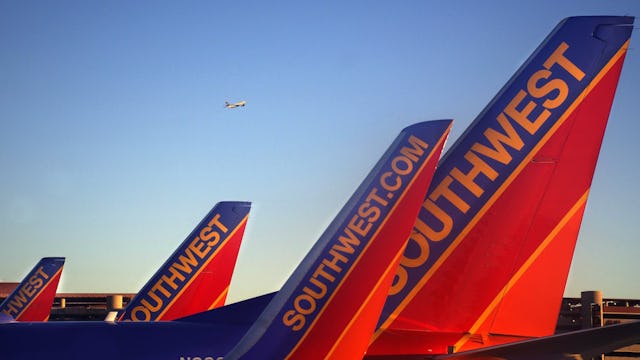Southwest Airlines Announces They Will Stop Serving Peanuts On All Flights

Southwest Airlines will discontinue their peanut snack option starting next month, and it’s about time
After serving the iconic airplane snack for decades, Southwest Airlines announced today that it will stop offering its peanut option on all flights beginning on August 1. The airline cited safety concerns for passengers with severe peanut allergies.
While some customers were miffed that the traditional airplane food would no longer be an option, most were supportive, while those with allergies were thankful. Honestly, it’s surprising that any airlines are still serving peanuts in 2018.
Related: Tree Nut Allergies In Children: Symptoms, Treatments & Everything Else A Mama Needs To Know
“Peanuts forever will be part of Southwest’s history and DNA,” the airline said in a statement. “However, to ensure the best on-board experience for everyone, especially for customers with peanut-related allergies, we’ve made the difficult decision to discontinue serving peanuts on all flights.”
“Our ultimate goal is to create an environment where all customers—including those with peanut-related allergies—feel safe and welcome on every Southwest flight,” the statement continued.
Southwest began serving peanuts in the 1970s, and they have been a staple on flights starting in the 1980s. Now, passengers will be offered a variety of other snacks, including pretzels, cookies, veggie chips, and corn chips.
While peanuts were a signature of Southwest, many other airlines serve the legume and some serve other nuts as well. No other airline has a strict ban on tree nuts, though some have policies in place for people with allergies, such as making an announcement about the allergy to the cabin, allowing the person to wipe down their area before boarding, or creating a peanut-free buffer zone around the person.
Lianne Mandelbaum, a food allergy advocate and the founder of The No Nut Traveler says “This change demonstrates they recognize that food allergy is a growing public health concern,” she told Boarding Area. “Anaphylaxis is a high risk situation up in the air, thousands of feet up in the air there is no quick access to an ER. If you miscalculate the initial reaction, it can turn deadly fast. Emergency landings are costly and incident reports time consuming.”
In March of this year, Southwest passenger Christian Calvert, a nine-year-old boy, had a severe allergic reaction to peanut dust on his flight, despite his family taking all precautions, including alerting the airline about his severe, life-threatening allergy before the flight.
“[An attendant] handed me some peanuts and that’s when, as a mom, I just basically broke down — ‘what do you mean?’” Calvert’s mother told Fox News. “How many have been handed out?”
As her son broke out in hives, she administered an EpiPen to save his life.
Peanut allergies are some of the most severe known food allergies. While some reactions are as mild as itchiness, hives, and stomach aches, others can be as severe as heart attack and anaphylaxis–both of which can be deadly. Applause to Southwest for taking this crucial step in keeping passengers with allergies safe in the air.
This article was originally published on